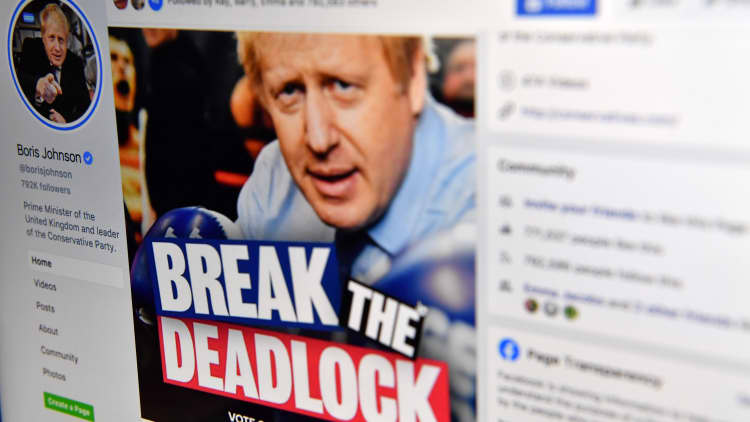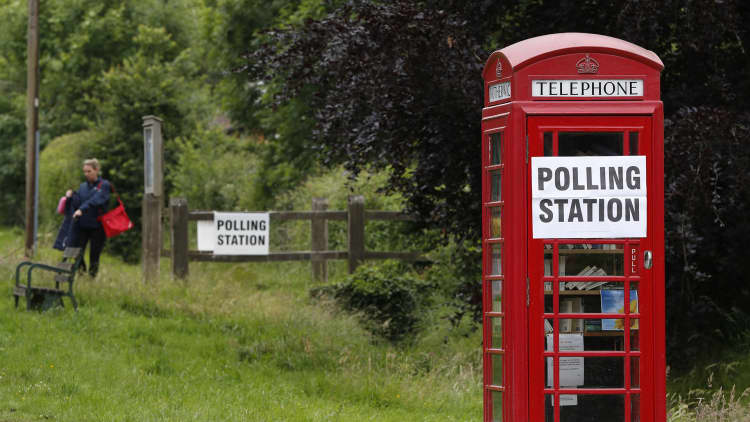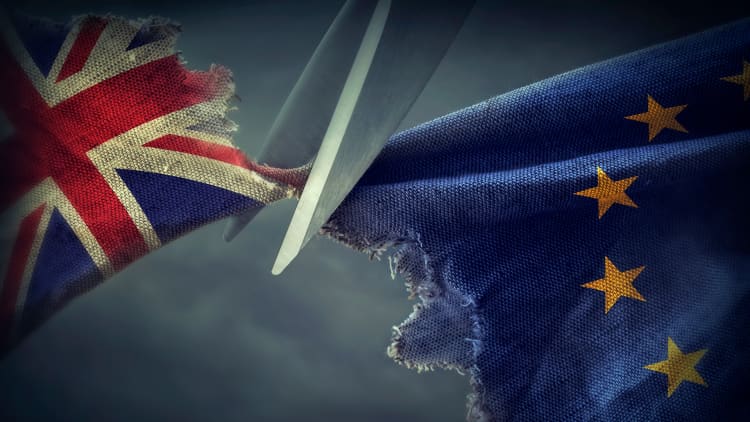
U.K. Prime Minister Boris Johnson is set to win big and remain in power, with early results indicating his Conservative Party winning a clear majority of parliamentary seats in a general election on Thursday.
As of 4:50 a.m. GMT, Johnson's Conservative Party had won more than 300 seats, while Jeremy Corbyn's Labour Party had garnered about 190 seats, according to the BBC's tally. At least 326 seats are needed for a majority.
After winning his seat in Uxbridge, Johnson said: "At this stage it does look as though this one-nation Conservative government has been given a powerful new mandate, to get Brexit done and not just to get Brexit done but to unite this country and to take it forward."
Liberal Democratic leader Jo Swinson lost her seat to the Scottish National Party. She had campaigned to overturn the 2016 Brexit vote.
Exit poll by Ipsos Mori — commissioned by Sky News, the BBC and ITV — was released soon after voting stations around the U.K. closed at 10 p.m. London time. It's a survey of thousands of voters which has been reliably accurate in recent years.
The poll projected that the Conservatives would win 368 seats in Parliament, a gain of 50 seats from the 2017 election. The U.K. pound quickly jumped more than 2% on the news.
A party usually needs more than 320 seats to have a majority in the House of Commons in order to pass bills. The opposition Labour party was predicted to lose 71 seats with a figure of 191. The centrist Liberal Democrats were predicted to get 13 seats, the Brexit Party none and the Scottish National Party 55 seats.
'Huge margin'
"Boris Johnson seems to have won the U.K. general election by a huge margin," Kallum Pickering, a senior economist at Berenberg, said in a research note.
He added that a win of this magnitude would mean the hardline euroskeptic wing of the Conservative Party would matter less than before, and it therefore lowers the risk of a hard Brexit.
The result of the election will have a decisive effect on the direction that Brexit takes, three-and-a-half years since the U.K.'s referendum on EU membership.
Prime Minister Boris Johnson's Brexit divorce deal has been agreed to in principle by the U.K. Parliament but is yet to be fully ratified by lawmakers. There have been deep divisions over the deal on offer and how close the U.K. should stay aligned to the EU after its departure from the bloc. The future of the border between the Republic of Ireland and Northern Ireland has also been a major sticking point.
The impasse and political chaos in the House of Commons ultimately led to Thursday's snap general election as Johnson lost the slim majority he held in the U.K.'s lower chamber of Parliament. The vote is the first to be held in the winter months since 1974 and the first December election since 1923.

'Get Brexit done'
Johnson had promised the public that a vote for his Conservative Party would "get Brexit done." The main opposition party, Labour, had pledged to renegotiate a Brexit deal with the EU and to then put this to a public vote. The Liberal Democrats had vowed to cancel Brexit altogether.
The Conservatives consistently led voter opinion polls up to the election date, although the party's lead had narrowed slightly in the last week.
Both the Conservatives and Labour had experienced mixed fortunes during the campaign, with question marks raised over trustworthiness, attitudes to religious minorities, and commitments to grand spending pledges.




